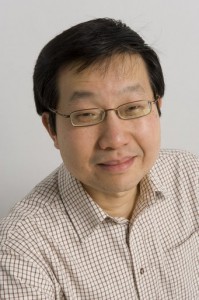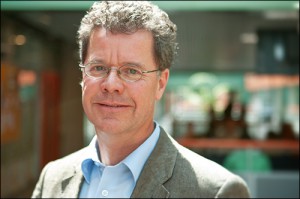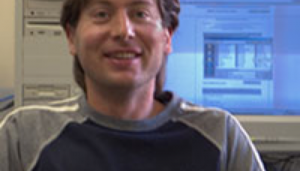Next TACL conference and school will be held in Czech Republic in June 2017.
More information available at: http://www.cs.cas.cz/tacl2017/.
Next TACL conference and school will be held in Czech Republic in June 2017.
More information available at: http://www.cs.cas.cz/tacl2017/.
The Programme Committee of TACL2015, together with the TACL Steering Committee, have decided to honour the memory of Grigori Mints and Franco Montagna, two respected and beloved logicians who recently passed away. The conference’s programme therefore includes two special in memoriam sessions. Each session consists of four contributed talks that relate in various manners to the work of Franco and Grigori. The sessions are scheduled as plenary. Please note that the coffee breaks preceding these two sessions end 10 minutes earlier than usual, in order to give the chairpersons the possibility of opening the sessions appropriately.
Below a detailed programme of the TACL conference split in 3+3 days. A full view of the programme can be also found here. A pdf file of the whole programme is available at the following link: TACL Complete Programme.
| Sunday, 21 | Monday, 22 | Tuesday, 23 | |||||||
| 9:00-10:00 | Michael Pinsker Topological Clones |
Emil Jerábek Generalizing the clone–coclone Galois connection |
|||||||
| 10:00-10:30 | Coffee Break (ends 10m earlier) | Coffee Break (ends 10m earlier) | |||||||
| 10:30-10:55 | Sylvia Pulmannova MV-pairs and state operators |
Rosalie Iemhoff Uniform interpolation in modal logics |
|||||||
| 10:55-11:20 | Registration | Amanda Vidal On strong standard completeness of MTL*(Q) expansions |
George Metcalfe Proof by Order |
||||||
| 11:20-11:45 | Coffee Break (only coffee and tea) | Coffee Break (only coffee and tea) | |||||||
| 11:45-12:10 | Samuel J. van Gool Uniform Interpolation and Compact Congruences |
Alex Citkin Hereditary Structural Completeness in Intermediate Logics |
|||||||
| 12:10-12:35 | Sándor JeneiClassification of absorbent-continuous, densely ordered, complete group-like FLe-chains |
Dmitrij Skvortsov On weak constant domain principle in the Kripke sheaf semantics |
|||||||
| 12:35-14:30 | Opening (starts at 14:15) | Lunch | Lunch | ||||||
| 14:30-15:30 | André Joyal Category theory and Homotopy type theory |
Keith Kearnes Problems on the Frontier of Commutator Theory |
Paulo Oliva Higher-Order Game Theory |
||||||
| 15:35-16:00 | Marc Bagnol Representation of Partial Traces
|
Revaz Grigolia The logic of quasi true |
Giulio Guerrieri, Luc Pellissier and Lorenzo Tortora De Falco Injectivity of relational semantics for (connected) MELL proof-structures via Taylor expansion
|
Karel Chvalovský Full Lambek Calculus with contraction is undecidable |
Valentin Shehtman Bisimulation games and locally tabular modal logics |
Marek Zawadowski Comparing presentations of algebraic theories
|
Patrick Morandi De Vries powers: A generalization of Boolean powers for compact Hausdorff spaces |
Denisa Diaconescu Witnessed Models and Skolemization in Substructural Logics |
Zofia KostrzyckaInterpolation in Brouwer logics determined by k-branching nets of clusters |
| 16:00-16:25 | Amit Kuber K-theory of modules as model-theoretic structures |
Francesco Marigo States on finite GBL*-algebras |
Gijs Wijnholds Syntactic Control for Compositional Vector Space Models |
Zhiguang Zhao Strict Implication Logics and Lambek Calculi |
Ilya Shapirovsky Complete axiomatizations of lexicographic sums and products of modal logics |
Marie Kerjean Tensor products and *-autonomous categories |
Mai Gehrke Duality for sheaf representations and related decompositions of distributive lattice ordered algebras |
Dana Šalounová Ideals and involutive filters in residuated lattices |
Stefano BonzioOrthogonal relational systems |
| 16:25-16:50 | Coffee Break | Coffee Break | Coffee Break | ||||||
| 16:50-17:15 | Rostislav Horcik Characterization of Finite Embeddability Property for (Distributive) Residuated Lattices via Regular (Tree) Languages |
Samuele Maschio A categorical structure of realizers for the Minimalist Foundation |
Jeannine Gabriëls New properties of Sasaki projections |
Petr Cintula Dense completeness theorem for protoalgebraic logics |
Sonia MarinA cut-free proof system for pseudo-transitive modal logics |
Sergejs Solovjovs Using Topological Systems To Create a Framework for Institutions |
Sumit Sourabh Subordinations, closed relations, and compact Hausdorff spaces |
Tommaso Moraschini Undecidability in abstract algebraic logic |
Julien RaskinDistributive contact lattices with nontangential part-of relations |
| 17:15-17:40 | Tomas Kroupa Imprecise Probabilities on MV-algebras Revisited |
Charles Grellois Higher-order model-checking, categorical semantics, and linear logic |
Boza Tasic On Regular Congruences of Ordered Semigroups |
Hugo Albuquerque Leibniz and Suszko filters for non-protoalgebraic logics |
Fan Yang Structural completeness in logics of dependence |
Elena Aladova Isomorphism of knowledge bases: on the edge of logic and geometry |
Luca Reggio Axiomatising the dual of compact Hausdorff spaces |
Giulia Frosoni Conuclear images of substructural logics |
Rafal GruszczynskiOn two ways of generating topological spaces from Grzegorczyk mereological structures |
Programme of the last three days (for the other ones, scroll up).
| Wednesday, 24 | Thursday, 25 | Friday, 26 | |||||||
| 9:00-10:00 | Maria Manuel Clementino Lax orthogonal factorization systems in Topology |
Jorge Picado Hausdorff mapping invariance theorems with sublocales |
Agata Ciabattoni (Algebraic) proof theory for substructural logics and applications |
||||||
| 10:00-10:30 | Coffee Break | Coffee Break | Coffee Break | ||||||
| 10:30-10:55 | Themba Dube On maps between Stone-Cech compactifications induced by lattice homomorphisms |
Pavol Zlatos On decidability of some classes of Stone algebras |
Michael Kompatscher Endomorphism monoids of omega-categorical structures |
Manuela Sobral Effective codescent morphisms of distributive lattices |
Stefano Aguzzoli Towards a Riesz Representation Theorem for Finite Heyting Algebras |
Anna Jencová and Gejza Jenca Quantum logics as relational monoids |
Wojciech Dzik and Piotr Wojtylak Projective Unification in Intermediate and Modal Predicate Logics |
Revantha RamanayakeBetween axioms and structural rules in the display calculus | Zhiguang Zhao Jonsson-style Canonicity for ALBA-Inequalities (Unified Correspondence I) |
| 10:55-11:20 | Oghenetega Ighedo Yet another ring-theoretic characterization of P-frames |
Alexei Muravitsky On One Embedding of Heyting Algebras |
Stefano Berardi Ramsey Theorem for pairs in k colors in the hierarchy of classical principles |
M. Andrew Moshier Coherence for Categories of Posets with Applications |
Pietro Codara Products in the category of forests and p-morphisms via Delannoy paths on Cartesian products |
Jirí Janda A Hilbert space operator representation of generalized effect algebras of bilinear forms and measures |
Samuel J. van Gool Monadic second order logic on infinite words is the model companion of linear temporal logic |
Giuseppe Greco Generalizing Belnap’s cut-elimination |
Alessandra Palmigiano Canonicity and Relativized Canonicity via Pseudo-Correspondence (Unified Correspondence II) |
| 11:20-11:45 | Coffee Break (only coffee and tea) | Coffee Break (only coffee and tea) | Coffee Break (only coffee and tea) | ||||||
| 11:45-12:10 | Peter Jipsen Complex algebras of tree-semilattices |
Imanol Mozo Carollo A description of the localic group of the unit circle |
Dorottya Sziraki On Sigma02 binary relations and elementary embeddability at uncountable cardinals |
Nick Galatos The FEP for some noncommutative varieties of fully distributive residuated lattices |
Ilya Shapirovsky On Completeness of Logics Enriched with Transitive Closure Modality |
Luigi Santocanale Relational lattices via duality |
Ramon Jansana A topological duality for posets |
Thomas Seiller Measurable Preorders and Complexity |
Willem Conradie Canonicity results for mu-calculi (Unified Correspondence III) |
| 12:10-12:35 | Brian Davey Quasi-primal Cornish algebras |
Yuan Ting Nai Open set lattices of the spaces of minimal prime elements of multiplicative lattices |
Tatsuji Kawai A uniform continuity principle for the Baire space and a corresponding bar induction |
Clint Van Alten The Canonical FEP Construction for Residuated Lattice Ordered Algebras |
Andrey Kudinov On pretransitive logics of finite depth |
Sabine Frittella, Alessandra Palmigiano and Luigi Santocanale Dual characterizations for finite lattices via correspondence theory for monotone modal logic |
Daniel Wessel A General Extension Theorem for Complete Partial Orders |
Roberto Maieli Topological Correctness Criteria for Linear Logic Proof Structures
|
Claudette Robinson Sahlqvist Theory for Hybrid Logics (Unified Correspondence IV) |
| 12:35-14:30 | Lunch | Lunch | Lunch | ||||||
| 14:30-15:30 | EXCURSION | Olivia Caramello The theory of topos-theoretic `bridges’, five years later |
Daniele Mundici Finitely presented MV-algebras, unital lattice ordered abelian groups and rational polyhedra—together |
||||||
| 15:35-16:00 | Silvio Ghilardi Admissible bases via stable canonical rules |
Giovanni Cinà Bisimulation and path logic for sheaves |
Diego Valota Representation of Free Finitely Generated Weak Nilpotent Minimum Algebras |
Jan Paseka Tense operators in logics without negation |
Tommaso Moraschini On everywhere strongly logifiable algebras |
Sumit Sourabh Sahlqvist theory for impossible worlds (Unified Correspondence V) |
|||
| 16:00-16:25 | Julia Ilin Stable modal logics |
Panagis Karazeris Constructions of Pretoposes |
Johannes Marti A Representation Theorem for System P |
Alberto Gatto Modal Characterization of a First Order Logic for Topology |
Zhiguang Zhao An Abstract Algebraic Logic view of judgment aggregation |
Apostolos Tzimoulis Unified Correspondence as a Proof-Theoretic Tool (Unified Correspondence VII) |
|||
| 16:25-16:50 | Coffee Break | Coffee Break | |||||||
| 16:50-17:15 | Miroslav Haviar TiRS graphs and frames: a new setting for duals of canonical extensions of lattices |
Catalina Ossa SGF-Quantales and their Groupoids |
Matteo BianchiTrakhtenbrot theorem and first-order axiomatic extensions of MTL |
Umberto Rivieccio Bilattice Logic of Epistemic Action and Knowledge |
|||||
| 17:15-17:40 | Andrew Craig Relational semantics via TiRS graphs |
David Kruml Constructing representations of ordered monoids |
Kristina BrantleyMonadic Fragments of Modal Predicate Logics |
Apostolos Tzimoulis An algebraic approach to Probabilistic Dynamic Epistemic Logic |
|||||
| Social dinner 19:30 (Hotel re Ferdinando) | |||||||||
The programme of the school is ready. We will meet on Monday at 10:50 in the room F6 of the Dipartimento di Matematica (see map below). We will then walk together to student house; the lectures will then start in the afternoon.
| Monday | Tuesday | Wednesday | Thursday | Friday | |
| 9:00-10:30 | Ieke Moerdijk | Luke Ong | Guram Bezhanishvili | Guram Bezhanishvili | |
| 10:30-10:50 | Coffee Break | Coffee Break | Coffee Break | Coffee Break | |
| 10:50-12:20 | REGISTRATION | Luke Ong | Ieke Moerdijk | Brian Davey | Luke Ong |
| 12:20-13:30 | Lunch Break | Lunch Break | Lunch Break | CLOSURE | |
| 13:30-15:00 | Social Excursion + Social Dinner | Brian Davey | Ieke Moerdijk | ||
| 15:00-15:15 | Opening | Break | Break | ||
| 15:15-16:45 | Brian Davey | Guram Bezhanishvili | Luke Ong | ||
| 16:45-17:05 | Coffee Break | Coffee Break | Coffee Break | ||
| 17:05-18:35 | Guram Bezhanishvili | Ieke Moerdijk | Brian Davey | ||
| Student session (h20:00, “Sala Riunioni” of the Student House) |
The booklet of abstracts of the conference is online. Please download it here.

Title: “Automata, Logic and Games for Higher-Order Model Checking”
Course description: In Part 1 of the course, we introduce the mathematical theory underpinning the model checking of computing systems. The main ingredients are:
Some topics: decidability of the MSO theory of the full binary tree, and its consequences; connections between parity games, modal mu-calculus, and alternating parity tree automata, and the sense in which they are equivalent.
Building on these foundations, we discuss, in Part 2, recent developments in high-order model checking, the model checking of infinite trees generated by higher-order recursion schemes (or equivalently lambda-Y calculus). Some topics: decidability of higher-order model checking with respect to modal mu-calculus, and compositional model checking of higher-type Böhm trees.
Lecture notes 1: Automata Logic Games 2015
Lecture notes 2: Higher-Order Model Checking: An Overview
Slides and more on Luke Ong’s webpage of the course
Lecture 1 video
Lecture 2 video
Lecture 3 video
Lecture 4 video
 Title: “From algebraic topology to algebraic set theory”
Title: “From algebraic topology to algebraic set theory”
Course description: In the first two lectures, we will discuss several approaches to axiomatic homotopy theory (notably Brown’s Categories of Fibrant Objects and Quillen’s Model Categories). We will then present a categorical axiomatisation of set theory, in the style of Algebraic Set Theory but directed more towards models of predicative set theory. In a final lecture, we will discuss how one can pass from (models of) the first axiomatisation to the second one. (This last part is based on joint work with Benno van den Berg).
 Title of the course: “Frames, topologies, and duality theory”
Title of the course: “Frames, topologies, and duality theory”
Course description: Frames are complete lattices that capture the basic features of topologies. The study of frames was initiated in the fifties of the last century. The resulting area is known as pointfree topology. The aim of this course is to present the basics of pointfree topology. The emphasis will be on providing pointfree descriptions of several well-known categories of topological spaces, such as compact Hausdorff spaces and Stone spaces, as well as their non-Hausdorff generalizations, spectral spaces and stably compact spaces. The corresponding categories of frames, as well as the resulting duality theory, will be discussed in detail. The celebrated Stone duality for Boolean algebras and for distributive lattices will be derived as corollaries. Applications of these results to logic will be mentioned towards the end of the course.
Lecture 1 video
Lecture 2 video
Lecture 3 video
Lecture 4 video